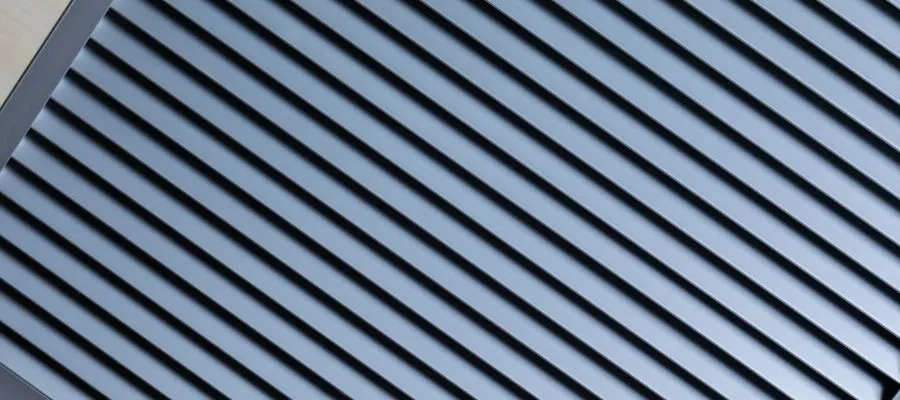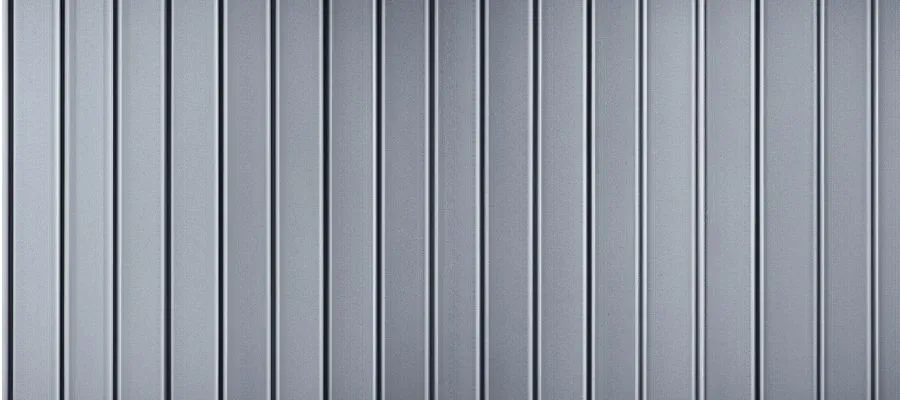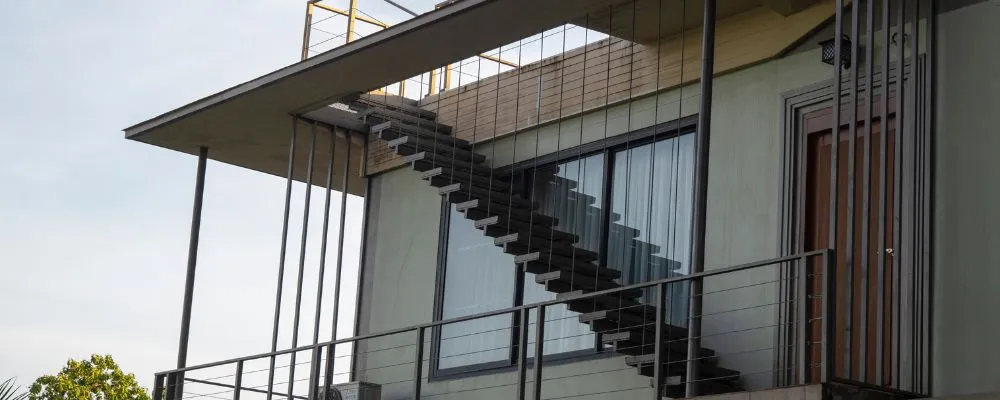Using new materials in building and construction has become an important part of being innovative and environmentally friendly. Aluminium composite panels (ACP) have become very popular in recent years. Aluminium cladding panels, also known as aluminium composite material, offer numerous advantages that are changing the landscape of home construction. In this blog, Brick & Bolt explains aluminium composite panels and their advantages and explores why they are gaining popularity among architects, builders, and homeowners.
What are Aluminium Composite Panels?

Before we discuss their benefits, let’s first understand aluminium composite panels. These panels consist of two aluminium sheets joined to a non-aluminium core, which is usually made of polyethylene or non-flammable material. Because of its unique composition, this material is lightweight and strong and has many benefits in many building settings.
Advantages of Aluminium Composite Panels

Aluminium composite panels (ACP) are popular in many fields, such as building, signage, and transportation, because they have a number of advantages:
1. Lightweight Construction
One of the best things about aluminium composite panels is their lightweight construction. Aluminium panels make the structure much lighter than standard building materials like brick or concrete. This feature not only makes it easier to move and set up, but it also reduces the amount of weight that needs to be supported by the structure, which could lower the cost of building.
2. Cost-efficient
Aluminium Composite Panels are very cost-effective. If you want to build something instead of using brick, stone, or concrete, ACPs are a cheaper option that doesn’t sacrifice quality or style. They are also very easy to assemble, speeding up the building process and saving time and labour. The fact that ACPs don’t need much upkeep also helps in long-term cost savings for building owners and developers.
3. Durability and Weather Resistance
Aluminium composite panels are very strong and aren’t damaged by the weather. Because they are made of metal, the outer layers protect well against rust, fading, and harsh weather like rain, wind, and sunlight. This makes the building facade strong enough to keep its good looks and structural integrity for a long time, which lowers the long-term cost of upkeep.
4. Versatility in Design
Aluminium composite panels can be used in many different ways and look great. Because they come in many colours, finishes, and textures, builders and designers can be as creative as they want and create a wide range of effects. Aluminium composite panels can be changed to fit any project’s design tastes and building needs, whether a sleek modern facade or a rustic-style exterior.
5. Fire Resistance
Safety is the most important thing when making something; aluminium composite panels are very good at keeping fires out. Many different types of ACP have fire-resistant cores that meet strict safety rules and standards. This fire protection enhances safety for individuals and provides reassurance to those residing or working within the building.
6. Ease of Maintenance
Maintaining the look of a building’s facade is important for keeping its worth and appeal. Aluminium composite walls don’t need much upkeep because they naturally resist stains, corrosion, and environmental pollutants. The panels normally only need to be cleaned once a week with water and a mild detergent. This saves time and money on maintenance.
Applications of Aluminium Composite Panels
Aluminum Composite Panels (ACP) are used in various industries because they are flexible, long-lasting, and look good. The following are some common uses:
Building Cladding:
ACPs are often used in residential and commercial buildings because they are long-lasting, don’t get damaged by weather, and look good. They give interior space a sleek and uniform look and can be used for furniture, walls, ceilings, and tables.
Advertising:
ACPs are great for advertising and making signages because they have a smooth surface on which pictures, logos, and text can be placed.
Interior Design:
ACPs are used in interior design for wall panels, partitions, ceilings, and furniture because they are flexible, look good, and are easily customised.
Transportation:
Due to their durability and lightweight, ACPs are used in transportation to make vehicle bodies, interior panels, and signs.
Industrial Uses:
ACPs are used in factories to make machine enclosures, cleanroom walls, and safety barriers. Because they are long-lasting and don’t rust, they can be used in harsh conditions.
Furniture and Product Design:
ACPs are being used increasingly in furniture design and product making because they are flexible and look modern. They’re used for things like shelves, tables, cabinets, and decorations.
Art Installations and Displays:
Artists and designers use ACPs to create new, interesting, and visually striking installations and displays. As a light and flexible medium, they let you explore your imagination and push the limits of design.
What are the Environmental Benefits of Aluminium Composite Panels?

ACPs, or aluminium composite panels, are good for the Earth in many ways. Because they are easy to recycle, they put less stress on aluminium sources and make less trash for landfills. ACPs also use and recover with less energy than other building materials, which means they use fewer resources and release fewer greenhouse gases. Since they last longer, they don’t need to be replaced as often, which further cuts down on resource use. Additionally, their lightweight lowers pollution caused by shipping, and some types provide better thermal protection, which lowers energy use. Low volatile organic compound emissions improve the quality of the air inside, and their flexibility means that builders don’t have to use as many different materials. The impacts of urban heat islands can be lessened by reflective coatings. Also, ACP usually uses less water, which makes them an eco-friendly choice for building projects.
In conclusion, aluminium composite panels are useful for building modern homes. As the needs of modern buildings change, ACPs offer a wide range of advantages, such as being durable and lightweight, easy to design, and insulating against heat. As environmentally friendly building methods become more popular, aluminium composite panels become an eco-friendly, cost-effective, and visually pleasing choice for architects, builders, and homeowners alike.

